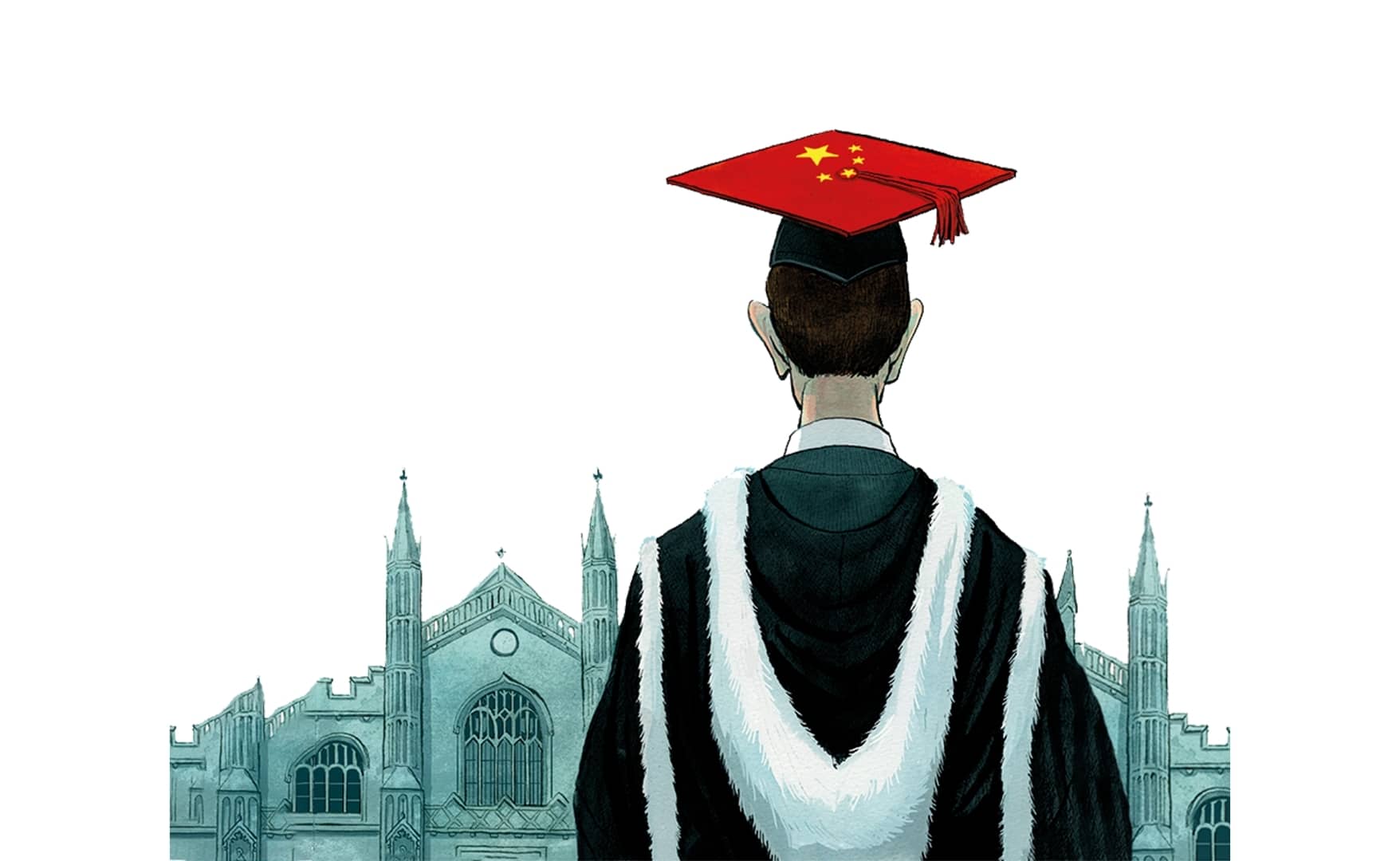The revelations this week of the alarming influence of Huawei within the Cambridge Centre for Chinese Management provide the latest evidence of the tightening grip of China on Britain’s leading university. The Times reports that three out of four directors of the centre — part of the university’s Judge Business School — have ties to the telecoms giant, which has close links to the Chinese Communist party. The centre’s ‘chief representative’ is a former vice-president of the company who has been paid by the Chinese government.
An honorary fellow of the centre wrote a book praising Huawei’s ‘ability to transform the intellectual elite into a band of soldiers with the same set of values and resolve’.
Hosting Chinese corporate bosses and party hacks, often one and the same thing, has become a lucrative business for the university
The business school is not the only place at Cambridge that Huawei has been busy this summer. The company is pressing ahead with what is described as the city’s ‘first 5G mobile private network’ within the university-owned Cambridge Science Park. It is part of a partnership that will involve ‘digital training, business support and joint events’.
‘We hope to bring something unique to the science park,’ says Huawei’s vice-president Victor Zhang. Partners would gain access to ‘our state-of-the-art equipment and markets including China and beyond.’ The project is described as one of a number to accelerate the ‘digitisation’ of the park.
In other words, the company that was barred on national security grounds from participation in Britain’s national 5G infrastructure has been handed contracts to provide that same technology and more to what is touted as a home for some of Britain’s most innovative new companies.
In one sense this should come as no surprise. Cambridge University has a £200 million joint venture to develop a science park with Tuspark, an offshoot of China’s Tsinghua University. Trinity is apparently unperturbed by Xi Jinping’s intense crackdown on academic freedom, including the persecution of prominent Tsinghua law professor Xu Zhangrun. He was barred from teaching and detained after criticising Xi Jinping’s ‘cult of personality’.
When it comes to providing ‘leadership training’ to Communist party-linked entities, the Cambridge Centre for Chinese Management is not alone. Hosting Chinese corporate bosses and party hacks, often one and the same thing, has become a lucrative business for the university. Jesus College, whose links with Huawei and China more generally have come under close scrutiny, has a Chinese Executive Leadership Programme, which ‘each year brings CEOs from China’s largest firms to the University of Cambridge for a three-week training programme, taught by a combination of academics and the leaders of international firms,’ according to the university website.
The director of the programme (and head of Jesus College’s China Centre) is Professor Peter Nolan. Last month he was one of the first visitors to the Chinese embassy in London to meet new ambassador Zheng Zequang. We know this not from Cambridge, which is generally less transparent than the Chinese Communist party, but from the ambassador’s Twitter feed. Zheng tweeted a photo of the two men sitting below a painting of galloping horses, large flags of the two nations beside them.
They ‘had an in-depth exchange of views on outstanding global and regional issues,’ said the caption. Zhang is no doubt looking forward to a continuing and productive relationship, and Cambridge seems determined not to disappoint him.








Comments